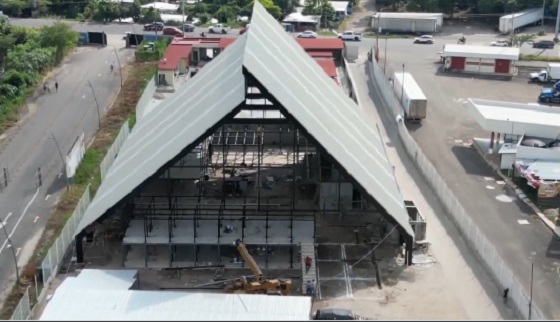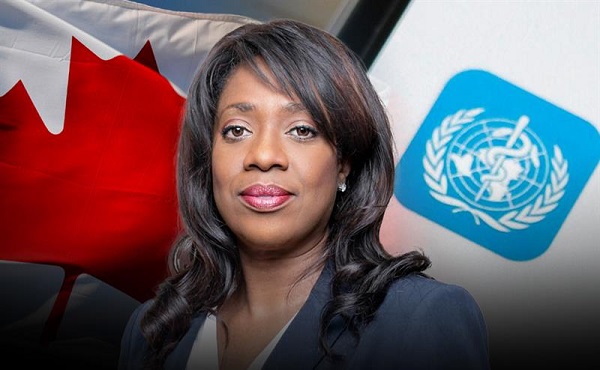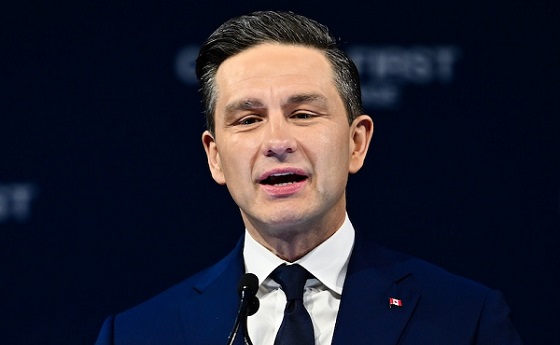Great Reset
A One-Stop Shop for Illegal Migration Reveals Ongoing Plans for Illegal Immigration

From the Center for Immigration Studies
By Todd Bensman
UN/NGO ‘mall’ under construction in southern Mexico shows they expect continued illegal flow to the U.S.
A 75,000-square-foot mega-mall, built to enable industrial-scale illegal immigration to the U.S. southern border, is almost online here in this key entry city in southern Mexico just across the border from Guatemala.
Scheduled to open in December, the mall suggests that powerful global agencies, the United Nations key among them, are bullish on a long-term future of continued heavy U.S.-bound illegal migrant traffic through Mexico – no matter the outcome of the November 5 American presidential election.
Those bullish investors are the dozens of migration-oriented UN agencies and non-governmental organizations (NGOs) that have already plowed hundreds of millions of dollars of U.S. taxpayer money into constructing a permanent network of way stations for thousands of miles along the migration routes from South America to the U.S. border during the four years of the Biden-Harris administration.

A Nicaraguan on his way to the U.S. showed his UN cash card in Monterrey, Mexico. January 2023 photo by Todd Bensman.
The record hundreds of millions of dollars in aid is distributed at the way station network in the form of cash cards, cash in envelopes, food, vouchers for onward travel and lodging, medical treatment, pharmaceuticals, legal counseling, and much more. (See: “UN Budgets Millions for U.S.-Bound Migrants in 2024”.) This aid has without doubt helped the UN and its growing constellation of NGOs keep the masses moving north through Tapachula in record numbers toward irresistible Biden border policies that have welcomed across arrivals in historic millions. (See: “Biden Admin. Sends Millions to Religious Nonprofits Facilitating Mass Illegal Migration”.)
The UN and NGOs are betting on a busy future in Mexico. Going forward, the purpose of this one strategically located facility is to “respond comprehensively to the needs of people who arrive in Mexico … migrant refugees who travel together from all continents, and arrive in Tapachula in need of a response or attention”, Giovanni Lepri, the Mexico representative for the United Nations High Commission on Refugees (UNHCR), told reporters when Mexico’s foreign ministry announced it in April 2024.
But the Tapachula mall represents a far more expansive billion-dollar migration-route safety net constructed during the Biden-Harris years using record-breaking U.S. taxpayer contributions.
It plugs into two other big one-stop-migration malls erected in the northern Mexico cities of Monterrey and Tijuana. These gleaming new Mexican facilities, and plenty of other UN and NGO substations in Mexican towns and cities, form the final terminus of the trails to the United States lined with pots of U.S. taxpayer money. And they are representative of what’s happening throughout Latin America.
The UN High Commissioner for Refugees (UNHCR), which received $1.9 billion in U.S. taxpayer funds in 2024 and $2.1 billion in 2023 (compared to $377 million in 2019) for migration assistance throughout Latin America, started building the Tapachula facility on land donated by Chiapas State as part of the deal with Mexico to run it.
The UNHCR, UN’s International Organization for Migration (IOM), UNICEF, and dozens of private, often religion-based, NGOs scattered around Tapachula will work alongside one another under one massive roof here — evidently planning a years-long collaboration.
None of the UN/NGO pots of gold are exactly a secret but are relatively hard to find for the uninitiated. And harder to grasp as connected to domestic American policies or as a legitimate point of political debate.
The UN’s 2024 update to the “Regional Refugee and Migrant Response Plan” (RMRP for short), a UNHCR and IOM planning and budget document, lays out in detail that it planned to hand out nearly $1.6 billion in 17 Latin America countries using its network of 248 different NGOs. (For the complete list of involved groups, see p. 268, here, and explore their activities further with this interactive tool).
That was on top of the 2023-2024 RMRP plan, which called for 228 NGOs (all listed on p. 268 of the list of involved groups) to spend $1.72 billion on trailside assistance to mass migration that all know will illegally pass through many countries and, finally, breach the U.S. border.
Hundreds of millions of dollars for all of this comes straight from U.S. taxpayers in the form of sharply increased US State Department bequeathals, USAID grants, and flexible spending contributions to the UNHCR and IOM.
Too Far for Average Americans to See

Necocli, Columbia to Acandi, Panama
For an idea of how U.S. tax money is spent to flood the American border, the far northwest Colombian town of Necocli provides a window. This is a major staging town for migrants preparing to boat across the Gulf of Uraba for smuggler-guided backpack trips through the so-called “Darien Gap” jungle passage that leads into Panama and eventually Mexico.
In Necocli, the UN and NGO agencies have arrayed themselves in something like an outdoor swap meet of NGO booths and an IOM mobile bus office on a few acres next to the gulf beach, the Center for Immigration Studies observed during an August 2024 research trip to the region. The Jewish NGO Cadena was set up in a booth next to the Adventist Development and Relief Agency (ADRA).
NGO and UN workers there said they provide a variety of trail advice — and plenty of supplies to the immigrants, to include socks, underwear, backpacks, bug repellant, water filters, sunscreen, and Vaseline.
And food.
“Like things easy to carry so they can eat and be done with it,” a Cadena worker said.
ADRA provides children’s classes thrice weekly on how to avoid sexual predators among the strange men traveling the Darien Gap.
On this day, a Cadena worker said she’d given out thousands of food items such as packaged soup to more than 3,000 migrants during the previous few months, showing the last of it: a box with a handful of granola bars she hoped to hand out soon so she could go home.
What about critics who say NGOs like Cadena are helping migrants break the laws of many countries?

A Cadena NGO worker in Necocli, Colombia. August 2024 photo by Todd Bensman.
“As an organization,” the Cadena worker responded. “We’re not here to judge. We’re just here to provide a service.”
”But aren’t you helping them migrate?”
“Only by giving them the things that I mentioned, not money or fare, just certain resources for the trip,” she explained.
UNHCR workers carrying iPads interacted with groups of migrants sitting in chairs under open-air shelters, surveying them and their needs for the trail ahead. The IOM workers hand out hygiene kits to women, but had run out of the kits some days earlier.
Across the Uraba Gulf in the staging town of Acandi, the Clan del Gulfo paramilitary controls the human smuggling operations into the Darien Gap. The cartel runs two migrant camps where the migrants are brought for final journey preparations.
The center gained permission to access one of the camps, “Camp 1”. Inside, the Center found NGOs providing medical services, legal counseling, and food.
Furthermore, Colombian banks also have been allowed to set up a money-wiring service so that migrants could pay their foot guides.
All involved could not possibly be unaware that the people they are assisting intend to break the immigration laws of a half dozen countries up trail, including, ultimately, illegally breaching the American border.
A Bright Future for Mass Migration?
The UN and NGO’s migration advocacy industrial complex is now preparing its 2025-2026 plan for the trails of Latin America.
A request for input from its NGO partners suggests an ambitious coming year of providing “cash and voucher assistance”, “food security”, “humanitarian transportation”, “shelter”, and most other basic human needs.
Who will be the recipients?
Refugees and migrants in-transit (of all nationalities) who cross an international border.
Censorship Industrial Complex
Canada’s justice minister confirms ‘hate crimes’ bill applies to online content

From LifeSiteNews
Individuals could be criminally charged for social media posts or other online content deemed offensive by the government under the Combating Hate Act.
Canadian Justice Minister Sean Fraser admitted that his new “hate crime” bill would indeed allow a person to be criminally charged for social media posts deemed offensive by the government.
Recently asked about Bill C-9, the Combating Hate Act, Fraser said the bill would indeed apply to certain online content that involves the “willful promotion of hatred.”
“Generally speaking, the law will apply equally online as it does in real communities,” he said, adding, “just in the limited circumstances where there is the willful promotion of hatred against someone.”
As reported by LifeSiteNews, Bill C-9 has been blasted by constitutional experts as allowing empowered police and the government to go after those it deems have violated a person’s “feelings” in a “hateful” way.
Bill C-9 was brought forth in the House of Commons on September 19 by Fraser. The Liberals have boasted that the bill will make it a crime for people to block the entrance to, or intimidate people from attending, a church or other place of worship, a school, or a community center. The bill would also make it a crime to promote so-called hate symbols and would, in effect, ban the display of certain symbols such as the Nazi flag.
While being questioned by Conservative MP Andrew Lawton about Bill C-9, Fraser was asked if the new law would “affect what people can say and write on the internet” and also if people could be retroactively punished for online comments made today.
In reply, Fraser said, “The only circumstance where you could imagine some online comment attracting scrutiny under this law would attach to behaviour that is criminal today but would be punished less severely.”
He said that “(t)he willful promotion of hate is a crime today, but we want to recognize a distinct charge where that same behaviour uses certain symbols of hate to bring a higher degree of culpability.”
John Carpay of the Justice Centre for Constitutional Freedoms (JCCF) has blasted Bill C-9 as something that would “empower police” and the government to go after those it deems have violated a person’s “feelings” in a “hateful” way.
Also, as reported by LifeSiteNews, Conservative MP Leslyn Lewis called out the hypocrisy of Bill C-9 for being silent regarding rising “Christian hate.”
Lewis has warned before that Bill C-9 will open the door for authorities to prosecute Canadians’ speech deemed “hateful possibly.”
Carpay also lamented how the bill mentions “rising antisemitism” but says nothing about the arson attacks on Catholic and Christian churches plaguing Canada.
“Anti-Catholic hate is obviously not on the minister’s radar. If it were, he would have mentioned it when introducing the Combating Hate Act,” Carpay wrote.
Since taking power in 2015, the Liberal government has introduced numerous new bills that, in effect, censor internet content and restrict people’s ability to express their views.
Digital ID
Thousands protest UK government’s plans to introduce mandatory digital IDs

From LifeSiteNews
Protestors rallied in London in opposition to ‘BritCard’, which would require the personal information of all UK workers
Thousands of protestors gathered in London to voice their opposition to the UK government’s plan to introduce mandatory digital IDs.
Last Saturday, the protestors marched through central London carrying signs that read “No to Digital ID,” “If You Accept Digital ID Today, You’ve Accepted Social Credit Tomorrow,” and “Once Scanned, Never Free.”
The protests came in response to Labour Prime Minister Keir Starmer announcing the government’s plan to introduce a mandatory digital ID, called “BritCard,” for everyone who wants to work in the UK. The plan has been met with a strong backlash from the public, including protests in other cities, as reported by LifeSiteNews. Almost three million people have signed a petition opposing the government’s plan to make the “BritCard” mandatory for all workers by 2029. According to the petition, “no one should be forced to register with a state-controlled ID system,” which it describes as a “step towards mass surveillance and digital control.”
Starmer and his government used the problem of illegal immigration, for which they are at least partly responsible, as a pretext to mandate digital ID. However, critics say the real purpose of the scheme is to introduce mass surveillance of British citizens in order to control them.
The globalist NGO of the former British Prime Minister Tony Blair, the “Tony Blair Institute for Global Change,” is one of the premier proponents of the digital ID scheme.
The protest in London was led by former Tory MP Andrew Bridgen, who was expelled from the Conservative Party in 2023 over his opposition to the COVID shots.
Silkie Carlo, director of civil liberties group Big Brother Watch, told the Daily Mail that digital ID was “fast becoming a digital permit required to live our everyday lives.”
“Starmer has sold his Orwellian digital ID scheme to the public on the lie that it will only be used to stop illegal working but now the truth, buried in the small print, is becoming clear,” she continued.
“We now know that digital IDs could be the backbone of a surveillance state and used for everything from tax and pensions to banking and education.”
“The prospects of enrolling even children into this sprawling biometric system is sinister, unjustified and prompts the chilling question of just what he thinks the ID will be used for in the future.”
“No one voted for this and millions of people who have signed the petition against it are simply being ignored,” Carlo concluded.
The BritCard would be stored on smartphones and include personal details such as name, date of birth, residency status, nationality, a photograph, and potentially more sensitive personal data. The government is reportedly considering introducing digital IDs for children as young as 13.
Conservative Party leader Kemi Badenoch said the proposal was a “gimmick that will do nothing to stop the boats,” while the head of Reform UK, Nigel Farage, said he was “firmly opposed” to it.
Farage has vowed to undo any digital ID system rolled out by the Labour government if he becomes UK’s next prime minister.
“It will make no difference to illegal immigration, but it will be used to control and penalize the rest of us,” Farage said regarding the BritCard. “The state should never have this much power.”
-

 Agriculture10 hours ago
Agriculture10 hours agoFrom Underdog to Top Broodmare
-

 Digital ID1 day ago
Digital ID1 day agoThousands protest UK government’s plans to introduce mandatory digital IDs
-

 Health20 hours ago
Health20 hours agoCanada surrenders control of future health crises to WHO with ‘pandemic agreement’: report
-

 Health10 hours ago
Health10 hours agoSovereignty at Stake: Why Parliament Must Review Treaties Before They’re Signed
-

 Carbon Tax1 day ago
Carbon Tax1 day agoBack Door Carbon Tax: Goal Of Climate Lawfare Movement To Drive Up Price Of Energy
-

 Business1 day ago
Business1 day agoSteel Subsidies Are The New Money Pit Burying Taxpayers
-

 Business9 hours ago
Business9 hours ago$15B and No Guarantees? Stellantis Deal explained by former Conservative Shadow Minister of Innovation, Science and Technology
-

 Alberta21 hours ago
Alberta21 hours agoAlberta’s licence plate vote is down to four









